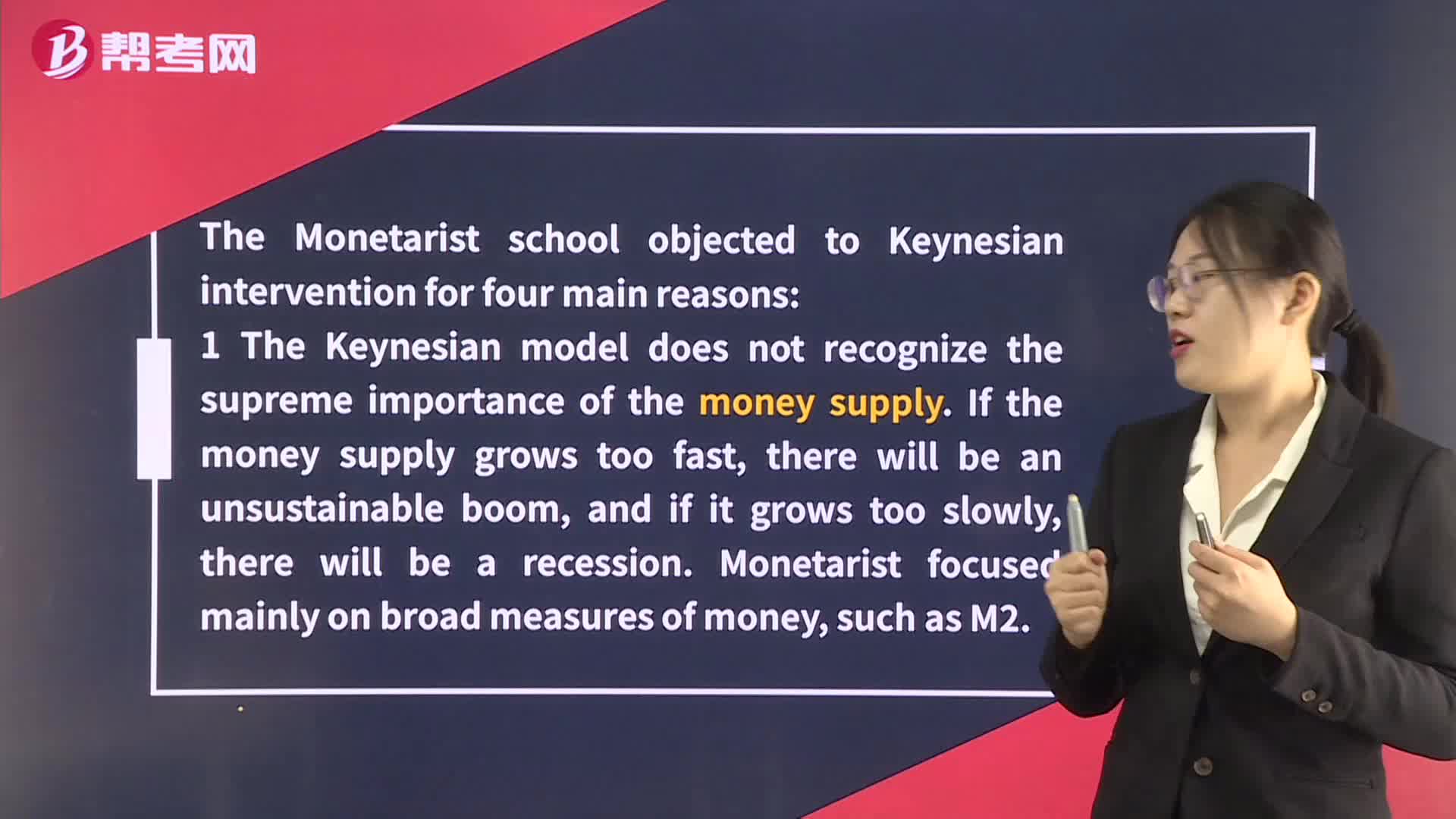
下载亿题库APP
联系电话:400-660-1360

下载亿题库APP
联系电话:400-660-1360

请谨慎保管和记忆你的密码,以免泄露和丢失

请谨慎保管和记忆你的密码,以免泄露和丢失
Theories of the Business Cycle - Monetarist School
The Monetarist school objected to Keynesian intervention for four main reasons:
1 The Keynesian model does not recognize the supreme importance of the money supply. If the money supply grows too fast, there will be an unsustainable boom, and if it grows too slowly, there will be a recession. Monetarist focused mainly on broad measures of money, such as M2.
2 The Keynesian model lacks a complete representation of utility-maximizing agents and is thus not logically sound.

3 Keynes’ short-term view failed to consider the long-term costs of government intervention (e.g., growing government debt and high cost of interest on this debt).
4 The timing of governments’ economic policy responses was uncertain, and the stimulative effects of a fiscal expansion may take effect after the crisis was over, and thus cause more harm than good.
According to the Monetarist school, business cycles may occur both because of exogenous shocks and because of government intervention.
A key part of monetarist thought is that the money supply needs to continue to grow at a moderate rate.
 184
184Theories of the Business Cycle - Neoclassical and Austrian Schools:hand,every good at which supply equals demand.:schoolto do in the recession phase is to allow the necessary market adjustment to take place as quickly as possible.
 158
158Theories of the Business Cycle - Monetarist School:Theories of:boom,consider the long-term costs of government intervention e.g.continue to grow at a moderate rate.
 134
134Theories of the Business Cycle - Keynesian School:would be hard to attain.:the economy is already recovering.

微信扫码关注公众号
获取更多考试热门资料